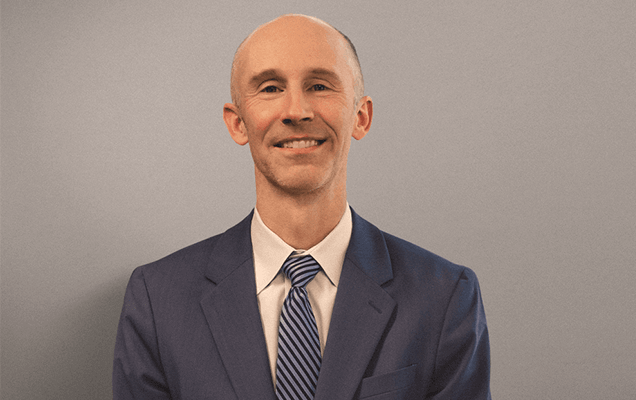Selective Dorsal Rhizotomy
How SDR works:
- Sensory Nerve Roots: In children with CP, sensory nerve roots in the spinal cord can become overactive, causing muscle spasticity, stiffness, and pain.
- Reduction of Spasticity: During an SDR procedure, the surgical team identifies and selectively cuts the most overactive, or spastic, sensory nerve roots. This reduces spasticity, allowing for improved muscle control and function.
The SDR Procedure:
- Minimally Invasive: SDR through a single level laminectomy is considered a minimally invasive procedure, meaning it involves small incisions and less tissue disruption.
- General Anesthesia: The procedure is performed under general anesthesia, ensuring the child remains asleep and pain-free throughout.
- Stay in the Hospital: After surgery, children typically stay in the hospital for a few days for observation and initial recovery.
Most surgeons do not do this minimally invasive but through a large incision on the back. this distinguishes us from everyone else in NJ.
Who is a candidate for SDR surgery?
Not all children with cerebral palsy are candidates for SDR. Evaluation by a multidisciplinary team, including a neurosurgeon, orthopedic surgeon, physiatrist, neurologist, physical therapist, and orthotist is best able to determine if SDR is the right treatment option for your child. Factors like age, severity and location of symptoms, and overall health will be considered.
Selective Dorsal Rhizotomy (SDR) is a surgical procedure that can be a life-changing option for children with cerebral palsy (CP). The key to successful SDR is selecting the right candidates who stand to benefit the most from this procedure.
Generally, good candidates for SDR are children aged 2 to 18 years with CP who experience significant muscle spasticity and stiffness, which limits their mobility and quality of life. These children often struggle with walking, experience muscle spasms, and have difficulty with everyday activities.
SDR is particularly effective for those with spastic diplegia or spastic quadriplegia, which are specific forms of CP characterized by spasticity in the legs or both arms and legs. A thorough evaluation by a multidisciplinary team, including a neurosurgeon, orthopedic surgeon, physiatrist, neurologist, physical therapist, and orthotist, is essential to determine if SDR is the right path.
Factors such as the child’s age, the severity of their symptoms, and their overall health will be carefully assessed to ensure that SDR offers the best chances for improved muscle control and enhanced quality of life.
However, it’s important to note that SDR is not a one-size-fits-all solution, and not all children with CP are suitable candidates. The decision to pursue SDR should be made in close consultation with medical professionals who specialize in the condition. It’s crucial to consider the unique needs and circumstances of each child, ensuring that the potential benefits of the surgery outweigh any associated risks.
While SDR can be a transformative intervention for many, a comprehensive evaluation helps determine the most appropriate treatment plan, whether it involves surgery, medication, intramuscular injections (e.g. Botox, alcohol), physical therapy, or a combination of therapies, to best support the child’s individual journey towards improved mobility and independence.
It's time to get back to doing what you love.
What to expect after SDR surgery
Following SDR, intense physical therapy is essential. Physical and occupational therapists work closely with the child to help improve muscle strength and control. This therapy is a crucial part of the long-term success of the procedure.
Benefits of SDR:
- Improved Muscle Tone: SDR significantly and permanently reduces muscle spasticity, leading to improved muscle tone.
- Enhanced Motor Function: By reducing spasticity, SDR enhances motor function, allowing for better muscle control.
Long-Term Outcomes:
The effects of SDR are long-lasting, providing a foundation for improved mobility and quality of life for children with CP. However, it’s essential to understand that each case is unique, and the long-term benefits may vary.
Selective Dorsal Rhizotomy (SDR) is a promising treatment option for children with cerebral palsy, offering improved muscle function and mobility. It’s a minimally invasive procedure that, when combined with intense physical therapy, can lead to lasting benefits.
If you believe your child may be a candidate for SDR, contact our office today to schedule a consultation. Our experienced neurosurgeon, together with the multidisciplinary team, can help you explore the potential benefits and risks associated with the procedure.

About Dr. Richard C.E. Anderson
Dr. Richard Anderson is recognized as one of the top, award-winning pediatric neurosurgeons in the Tri-State region. He practices out of Neurosurgeons of New Jersey's Central and North Jersey locations including the Ridgewood, Livingston and Paterson offices. Utilizing the most innovative, proven technology, Dr. Anderson specializes in the treatment of pediatric brain and spinal disorders by means of minimally invasive surgeries and complex surgeries when appropriate. With over 250 publications, invited lectures, TV, and magazine interviews, Dr. Anderson is consistently named one of America’s Top Doctors, America’s Top Surgeons, Favorite Kid’s Doctors in NJ, and recipient of Patient’s Choice Award. He is currently accepting new patients.






